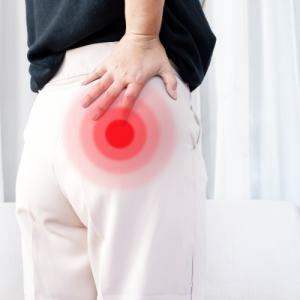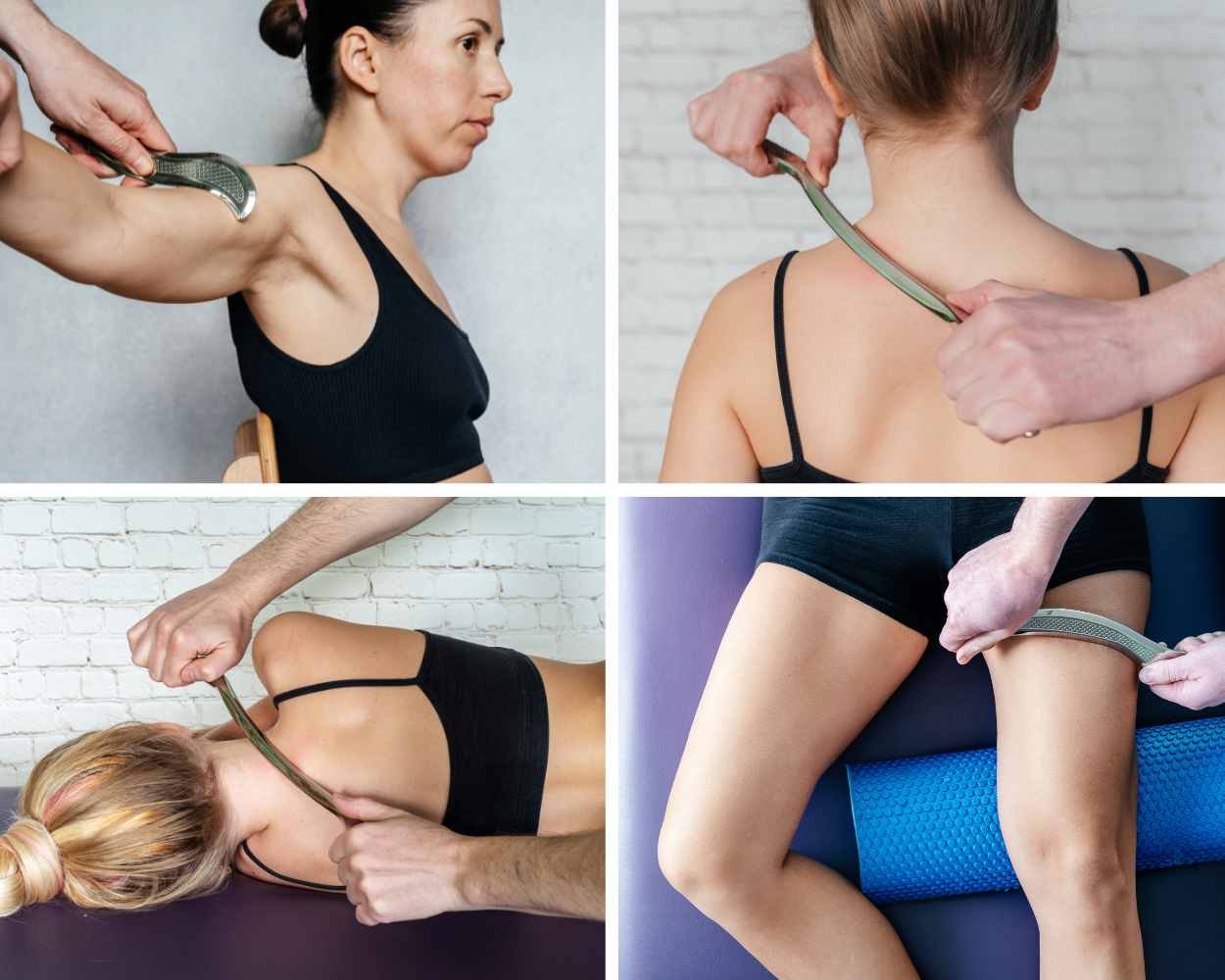Expert Gluteal Tendinopathy Treatment in Vadodara
Find relief from hip and buttock pain with professional chiropractic care. Heal your gluteal tendons naturally without drugs or surgery.

Understanding Gluteal Tendinopathy
A common cause of hip pain that affects mobility and quality of life
What is Gluteal Tendinopathy?
Gluteal tendinopathy is a condition involving degeneration and inflammation of the gluteal tendons, particularly the gluteus medius and minimus tendons where they attach to the greater trochanter of the femur. Common causes include:
- Overuse and repetitive strain from activities like running, climbing stairs, or prolonged standing
- Age-related changes in tendon structure and blood supply
- Biomechanical issues like poor hip alignment or muscle imbalances
- Sudden increase in activity level without proper conditioning
- Compression forces from tight fascia or poor sleeping positions
Chiropractic care addresses the underlying biomechanical issues while promoting natural tendon healing through targeted therapies.

Recognizing Gluteal Tendinopathy Symptoms
Early identification helps prevent chronic issues and faster recovery
Lateral Hip Pain
Pain on the outside of the hip that may radiate down the thigh. Often tender to touch over the greater trochanter.
Night Pain
Pain when lying on the affected side, often disrupting sleep. May also experience pain when rolling over in bed.
Stiffness After Sitting
Pain and stiffness when standing up after prolonged sitting, or when taking the first few steps after rest.
Activity-Related Pain
Pain during or after activities like walking, climbing stairs, running, or standing for long periods.
Common Risk Factors
Understanding what increases your risk helps in prevention
Female Gender
Women are 2-4 times more likely to develop gluteal tendinopathy, possibly due to differences in pelvic anatomy and hormones.
Age 40-60
Most common in middle age due to age-related changes in tendon structure and cumulative stress over time.
Obesity & Sudden Weight Gain
Increased body weight places additional stress on the gluteal tendons and hip structures.
Biomechanical Factors
Poor hip alignment, muscle weakness, leg length discrepancy, or altered gait patterns increase tendon stress.
Our Gluteal Tendinopathy Treatment Approach
Evidence-based chiropractic care for complete tendon recovery
Comprehensive Assessment

Biomechanical Assessment
Detailed evaluation of hip alignment, muscle balance, gait pattern, and functional movements to identify contributing factors.

Palpation & Tenderness Mapping
Precise identification of tender points, trigger points, and specific tendon involvement to guide treatment.

Strength & Function Testing
Assessment of gluteal muscle strength, endurance, and functional capacity to develop targeted rehabilitation.
Our Treatment Methods

Joint Mobilization
Gentle adjustments to restore proper hip, sacroiliac, and lumbar spine alignment, reducing abnormal tendon stress.

Soft Tissue Therapy
Targeted techniques to release tension in gluteal muscles, break down adhesions, and promote tendon healing.

IASTM Therapy
Instrument-assisted soft tissue mobilization to address fascial restrictions and stimulate tendon repair processes.

Dry Needling
Precise needling techniques to release trigger points, reduce muscle tension, and improve blood flow to healing tendons.

Progressive Tendon Loading
Structured exercise program with controlled, progressive loading to strengthen tendons without causing further damage.

Biomechanical Correction
Addressing underlying movement patterns, muscle imbalances, and postural issues that contribute to tendon overload.
Tendon Recovery Phases
Understanding the healing process for optimal recovery
Phase 1: Reactive Phase (Weeks 1-3)
Focus: Pain reduction and inflammation control
- Relative rest and activity modification
- Ice therapy and pain management techniques
- Gentle isometric exercises
- Avoiding compressive positions and activities
Phase 2: Repair Phase (Weeks 3-12)
Focus: Controlled tendon loading and strengthening
- Progressive resistance exercises
- Eccentric loading program
- Balance and proprioception training
- Gradual return to functional activities
Phase 3: Remodeling Phase (Months 3-6+)
Focus: Functional integration and prevention
- Sport-specific or activity-specific training
- High-level strength and power exercises
- Maintenance of biomechanical corrections
- Long-term prevention strategies
Patient Success Story
Real results from our gluteal tendinopathy treatment
"I suffered from debilitating hip pain for over 6 months that prevented me from walking long distances or even sleeping on my side. After being diagnosed with gluteal tendinopathy, I tried various treatments with little success. Dr. Chandresh's comprehensive approach combining chiropractic adjustments, dry needling, and a progressive exercise program completely transformed my recovery. Within 8 weeks, I was pain-free and could return to my daily walks and yoga practice. The education on proper sleeping positions and activity modification was invaluable."
- 52-year-old female patient from Vadodara (Gluteal Tendinopathy Recovery)
Preventing & Managing Gluteal Tendinopathy
Proactive strategies for long-term hip health
Gluteal Strengthening
Regular strengthening of gluteus medius and minimus muscles to support hip stability and reduce tendon stress.
Sleep Position Modification
Avoid sleeping on the affected side. Use pillows between knees when side-sleeping to maintain hip alignment.
Gradual Activity Progression
Avoid sudden increases in walking, running, or stair climbing. Gradually build up activity levels over time.
Weight Management
Maintain healthy body weight to reduce compressive forces on the gluteal tendons and hip structures.
Cross-Training
Incorporate low-impact activities like swimming or cycling to maintain fitness while reducing tendon stress.
Regular Maintenance Care
Periodic chiropractic check-ups to maintain proper hip alignment and address issues before they become problematic.
Ready to Find Relief from Hip Pain?
Book your consultation today and start your journey to pain-free movement
Comprehensive Tendon Recovery
No drugs, no surgery - just proven chiropractic techniques for complete gluteal tendon rehabilitation